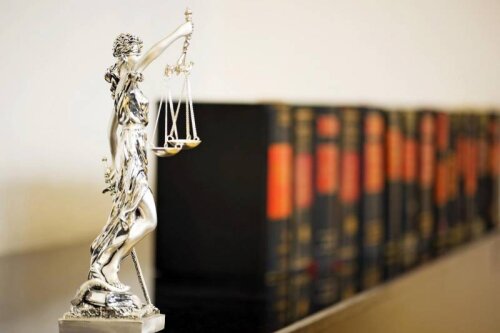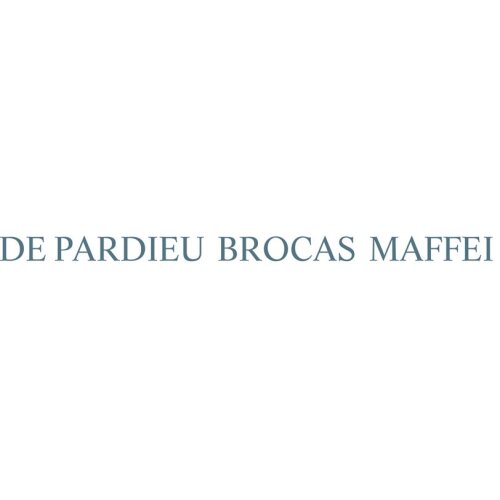Best Licensing Lawyers in France
Share your needs with us, get contacted by law firms.
Free. Takes 2 min.
Or refine your search by selecting a city:
List of the best lawyers in France
About Licensing Law in France
Licensing law in France governs the permissions and agreements that allow one party to use the property, resources, or rights of another party under stipulated conditions. It includes various fields such as intellectual property licensing, software licensing, and business operation permits. Licenses can be exclusive or non-exclusive and may grant rights to a wide variety of intellectual and physical properties. French licensing law ensures that such agreements are fair, balanced, and enforceable, providing protection for innovators and creators while facilitating the legal use and distribution of their work.
Why You May Need a Lawyer
Engaging a lawyer specialized in licensing law may be necessary in several scenarios, such as:
- Negotiating the terms of a licensing agreement to ensure favorable terms and minimize risks.
- Resolving disputes arising from licensing agreements, including issues of infringement or breach of contract.
- Ensuring compliance with French laws when expanding internationally or dealing with foreign licenses.
- Protecting intellectual property rights and dealing with unauthorized use of licensed materials.
- Seeking advice on renewal, transfer, or termination of existing licenses.
- Advising on the tax implications and financial structures related to licensing deals.
Local Laws Overview
French licensing law is primarily shaped by the French Civil Code and various specialized legal frameworks, such as:
- Intellectual Property Code: Governs the licensing of intellectual creations, covering copyrights, patents, and trademarks.
- Contract Law: Ensures that licensing agreements meet the essential criteria of French contract law, meaning they must involve a lawful cause, consent, and a defined object.
- Competition Law: Licensing agreements must comply with competition laws to prevent anti-competitive practices.
- Data Protection Regulations: In cases such as software licensing, agreements must adhere to data protection laws, including the GDPR.
- Administrative Licenses: Certain types of businesses require special governmental licenses regulated under specific administrative laws.
Frequently Asked Questions
What is included in a licensing agreement?
A typical licensing agreement includes the scope of the license (rights and limitations), duration, financial terms, quality controls, compliance with applicable laws, and procedures for dispute resolution.
Do I need a license to use copyrighted material in France?
Yes, using copyrighted material without a proper license is unlawful. A licensing agreement grants the legal right to use the material under specified conditions.
How are licensing disputes resolved in France?
Disputes can be resolved through negotiations, mediation, arbitration, or court litigation. Often, licensing agreements specify the method for dispute resolution.
What is the difference between an exclusive and a non-exclusive license?
An exclusive license grants rights to one licensee only, excluding all others, including the licensor. A non-exclusive license allows the licensor to grant the same rights to multiple licensees.
Is a verbal licensing agreement valid in France?
While verbal agreements can be legal in France, proving the terms and conditions in a court can be challenging. Written agreements are strongly recommended.
Can a license be terminated before its expiration in France?
It depends on the terms stipulated in the licensing agreement. Grounds for early termination might include breach of contract, mutual agreement, or redundancy of the agreement’s purpose.
Do software licenses fall under the same category as other intellectual property licenses?
Yes, software licenses are considered a subset of intellectual property licenses, governed by similar legal principles, with additional considerations for software-specific issues like user limitations and distribution rights.
How are royalties from licenses taxed in France?
Royalties are generally considered taxable income in France and may be subject to withholding tax if paid to non-residents, depending on applicable tax treaties.
Are international licensing agreements enforceable in France?
Yes, provided they comply with French laws and international treaties France adheres to, such as the Berne Convention for the Protection of Literary and Artistic Works.
What are the consequences of using a product without a license?
Unauthorized use of a licensed product can lead to legal repercussions, including fines, penalties, and injunctions to cease the infringing activity.
Additional Resources
Here are some helpful resources and organizations in France pertaining to licensing:
- INPI (Institut National de la Propriété Industrielle): Provides information on intellectual property rights and related licensing issues.
- Official Government Portal: Offers guidance on licensing requirements for specific business activities.
- SACEM (Société des Auteurs, Compositeurs et Editeurs de Musique): A collecting society that manages music licensing rights in France.
- Specialized Law Firms: Numerous law firms in France specialize in licensing law and can offer personalized advice and representation.
Next Steps
If you require legal assistance in the field of licensing in France, consider the following actions:
- Identify the specific area of licensing you need advice on (e.g., intellectual property, business licenses).
- Contact a legal professional who specializes in licensing law to discuss your situation and explore potential solutions.
- Prepare all relevant documents and information related to your licensing needs or disputes.
- Explore free consultations or initial advice sessions offered by some law firms to better understand your legal standing.
- Stay informed about your legal rights and obligations regarding licensing by accessing governmental advisory services and professional legal bodies.
Lawzana helps you find the best lawyers and law firms in France through a curated and pre-screened list of qualified legal professionals. Our platform offers rankings and detailed profiles of attorneys and law firms, allowing you to compare based on practice areas, including Licensing, experience, and client feedback.
Each profile includes a description of the firm's areas of practice, client reviews, team members and partners, year of establishment, spoken languages, office locations, contact information, social media presence, and any published articles or resources. Most firms on our platform speak English and are experienced in both local and international legal matters.
Get a quote from top-rated law firms in France — quickly, securely, and without unnecessary hassle.
Disclaimer:
The information provided on this page is for general informational purposes only and does not constitute legal advice. While we strive to ensure the accuracy and relevance of the content, legal information may change over time, and interpretations of the law can vary. You should always consult with a qualified legal professional for advice specific to your situation.
We disclaim all liability for actions taken or not taken based on the content of this page. If you believe any information is incorrect or outdated, please contact us, and we will review and update it where appropriate.
Browse licensing law firms by city in France
Refine your search by selecting a city.
















